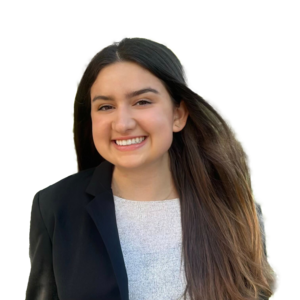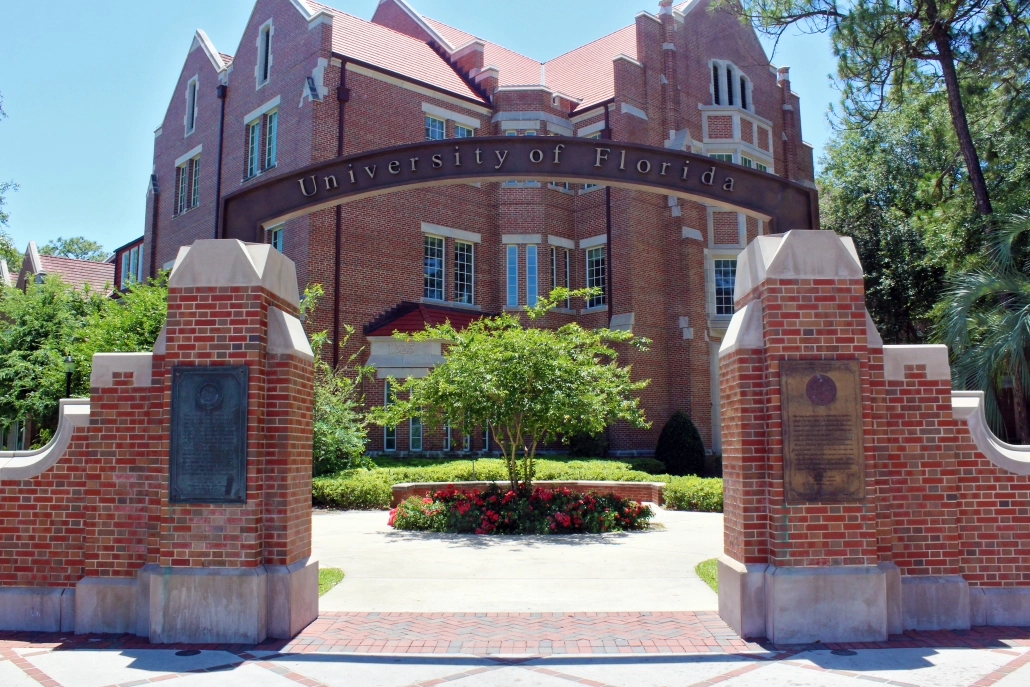THE OTHER 49
USC is failing its Jewish students, UF does better
USC can learn from how UF handled the growing problem of antisemitism.
USC can learn from how UF handled the growing problem of antisemitism.


Universities across the country have had vastly different responses to the Israel-Hamas war. Many California schools, such as USC, UCLA and UC Berkeley, initially avoided the issue or claimed it was too complicated or nuanced. The University of Florida stood out as one of the few major universities that released a strong statement condemning both Hamas and the rising antisemitism.
UF’s president Ben Sasse — the same Ben Sasse who voted to convict President Donald Trump for the Jan. 6 insurrection as a Republican Senator for Nebraska — handled his response to Hamas’ attack with poise and compassion.
“I will not tiptoe around this simple fact: What Hamas did is evil and there is no defense for terrorism. This shouldn’t be hard,” he wrote. “Sadly, too many people in elite academia have been so weakened by their moral confusion that, when they see videos of raped women, hear of a beheaded baby or learn of a grandmother murdered in her home, the first reaction of some is to ‘provide context’ and try to blame the raped women, beheaded baby or the murdered grandmother. In other grotesque cases, they express simple support for the terrorists.”
Florida State University, the University of Miami, the University of Maryland, Johns Hopkins University and Brandeis University issued similarly strong responses calling for solidarity with Israel.
President Carol Folt failed to achieve this moral clarity. Folt’s initial statement on Oct. 8 was far too ambiguous about the terrorist attacks and how they impacted USC’s 3,000 Jewish students.
“The grave events and the tragic loss of life taking place right now in Israel and Gaza fill us with such sadness,” Folt wrote in the statement. “Our hearts go out to the millions of people there and to our own Trojan students, staff, faculty, families, and alumni hurting and in fear for loved ones. We must — by working together with empathy and compassion — keep this anger and fear from harming and overwhelming our own community.”
Nearly every Jewish person knows someone, or knows someone who knows someone, who lost their life in the attack. It was thus discomforting for Jewish students to read a statement that failed to define the attack as terrorism.
Folt’s second statement on Oct. 10 correctly referred to Hamas’ actions as a “terrorist attack.” But this adjustment was too little, too late, and still lacked a definitive moral stance on antisemitism. The seeds of anti-Israel hate were already sprouting on campus.
Folt’s nuanced attitude helped to cultivate a friendly environment for anti-Israel students. On Oct. 17, Students for Justice in Palestine promoted a so-called “peaceful protest” to “call for an end to the siege and genocide of Gaza.”
Personally, I did not feel safe walking by the protest, especially with the repeated chanting of, “There is only one solution, Intifada revolution” as more than one hundred students marched across campus.
According to Britannica, an “intifada” is defined as “uprisings of Palestinians in the West Bank and Gaza Strip aimed at ending Israel’s occupation of those territories and creating an independent Palestinian state” — historically resulting in aggressive and deadly violence.
To my ears, this chant sounded like the Nazi’s “Final Solution” to the “Jewish question” that led to the genocide of six million Jews only 80 years ago. I felt I was witnessing the 1930s Nuremberg rallies during the rise of the Nazi party while walking through the quad.
The University did nothing to stop what I perceived to be heartbreaking hate speech that aggressively promoted violence against Israel, which is increasingly resulting in hate crime upticks against Jews everywhere, like me, my friends and my family.
As the granddaughter of a Holocaust survivor who lost dozens of immediate relatives in Nazi concentration camps, the horror of what is happening on the USC campus is sickening. Never has “never again” had such little meaning.
When students parade through campus using language that is similar to that of the 1988 Hamas Charter, which calls for the destruction of Israel and the death of Jews everywhere, it should be easy to understand why Jewish students are alarmed. The “intifada” chant outwardly opposed the idea of a Jewish state. Yet Folt seems to lack this awareness or chooses not to embrace it.
In response to a request for comment on the nature and language of Folt’s two statements, the University wrote, “Her first update, one of the first to be issued from a university, was designed to get out fast to provide information to students about resources and additional safety precautions being put in place in real time. Much was still unfolding, and so with the second post, she wanted to expand and clarify her statement, and make clear the university would continue to provide updates as appropriate.”
Its response also added that each day, “[Folt] and her leadership team reach out to students, student leaders, faculty, parents, and many others in the Trojan community to learn what support is needed.”
If the University is making such outreach, it has not trickled down to me or my peers, even as our safety fears grow. The only update that I saw on social media after receiving this statement was Folt cheering on the football team in the “big game” against Utah Saturday.
I am not asking USC to take a side or solve the world’s problems. I simply believe Folt should recognize that students chanting “One solution, intifada revolution” contributes to the rise in antisemitism, often referred to as the oldest form of hate.
There should be no room for hate on the USC campus. Do you agree, President Folt? Antisemitism should not be complicated for administrators with PhDs. UF and other universities showed us that a university can stand behind its Jewish students and make them feel safe on campus.
Do better, USC.
Laya Albert is a sophomore writing about the significant issues in states beyond California. Her column, “The Other 49,” runs every other Monday.
We are the only independent newspaper here at USC, run at every level by students. That means we aren’t tied down by any other interests but those of readers like you: the students, faculty, staff and South Central residents that together make up the USC community.
Independence is a double-edged sword: We have a unique lens into the University’s actions and policies, and can hold powerful figures accountable when others cannot. But that also means our budget is severely limited. We’re already spread thin as we compensate the writers, photographers, artists, designers and editors whose incredible work you see in our daily paper; as we work to revamp and expand our digital presence, we now have additional staff making podcasts, videos, webpages, our first ever magazine and social media content, who are at risk of being unable to receive the support they deserve.
We are therefore indebted to readers like you, who, by supporting us, help keep our paper daily (we are the only remaining college paper on the West Coast that prints every single weekday), independent, free and widely accessible.
Please consider supporting us. Even $1 goes a long way in supporting our work; if you are able, you can also support us with monthly, or even annual, donations. Thank you.
This site uses cookies. By continuing to browse the site, you are agreeing to our use of cookies.
Accept settingsDo Not AcceptWe may request cookies to be set on your device. We use cookies to let us know when you visit our websites, how you interact with us, to enrich your user experience, and to customize your relationship with our website.
Click on the different category headings to find out more. You can also change some of your preferences. Note that blocking some types of cookies may impact your experience on our websites and the services we are able to offer.
These cookies are strictly necessary to provide you with services available through our website and to use some of its features.
Because these cookies are strictly necessary to deliver the website, refusing them will have impact how our site functions. You always can block or delete cookies by changing your browser settings and force blocking all cookies on this website. But this will always prompt you to accept/refuse cookies when revisiting our site.
We fully respect if you want to refuse cookies but to avoid asking you again and again kindly allow us to store a cookie for that. You are free to opt out any time or opt in for other cookies to get a better experience. If you refuse cookies we will remove all set cookies in our domain.
We provide you with a list of stored cookies on your computer in our domain so you can check what we stored. Due to security reasons we are not able to show or modify cookies from other domains. You can check these in your browser security settings.
These cookies collect information that is used either in aggregate form to help us understand how our website is being used or how effective our marketing campaigns are, or to help us customize our website and application for you in order to enhance your experience.
If you do not want that we track your visit to our site you can disable tracking in your browser here:
We also use different external services like Google Webfonts, Google Maps, and external Video providers. Since these providers may collect personal data like your IP address we allow you to block them here. Please be aware that this might heavily reduce the functionality and appearance of our site. Changes will take effect once you reload the page.
Google Webfont Settings:
Google Map Settings:
Google reCaptcha Settings:
Vimeo and Youtube video embeds:
The following cookies are also needed - You can choose if you want to allow them:
